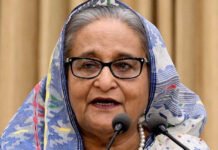The political climate in Karnataka is currently a hotbed of national attention, following significant electoral successes for the Bharatiya Janata Party (BJP) across various Indian states. Former Chief Minister H.D. Kumaraswamy’s recent claims suggest an imminent shift in the state’s political power dynamics, potentially altering the current Congress-led government’s stability.
Analysis of The Current Political Scenario
The Congress party, under the leadership of Revanth Reddy, holds a majority in Telangana, standing in contrast to the BJP’s growing influence in other regions. However, the political landscape in Karnataka presents a different story. Kumaraswamy’s assertions indicate that a significant number of Congress legislators might soon join the BJP, echoing the political upheavals seen in Madhya Pradesh and Maharashtra.
Key Factors Influencing The Karnataka’s Politics
- BJP’s Electoral Gains: The party’s recent electoral successes have strengthened its position, particularly after winning a notable number of seats in Telangana.
- Congress’s Current Position: Despite having a clear majority in Telangana, the Congress is facing uncertainty in Karnataka.
- Political Shifts: The potential defection of Congress legislators to the BJP could mirror similar political shifts observed in other states.
Implications for Future Elections
The BJP’s strategy and the Congress’s response in Karnataka are likely to have significant implications for the upcoming Lok Sabha elections in 2024. The political maneuvering in the state is a critical indicator of broader national trends and strategies adopted by major political parties.
Frequently Asked Questions (FAQs)
- Q: How significant is the BJP’s rise in Karnataka?
- A: The BJP’s rise in Karnataka is significant, considering its impact on the state’s political stability and its potential influence on national politics.
- Q: What might be the Congress’s strategy in response to these developments?
- A: The Congress is likely to strengthen its internal cohesion and might initiate strategic alliances or outreach programs to counter the BJP’s influence.
Conclusion
The political scenario in Karnataka is rapidly evolving, with significant implications for both state and national politics. The potential shift in power dynamics, as indicated by Kumaraswamy’s claims, highlights the fluid nature of Indian politics and the strategic maneuvers by major political players. As the situation unfolds, it will be crucial to monitor how these changes impact the political landscape in the run-up to the 2024 Lok Sabha elections.
















